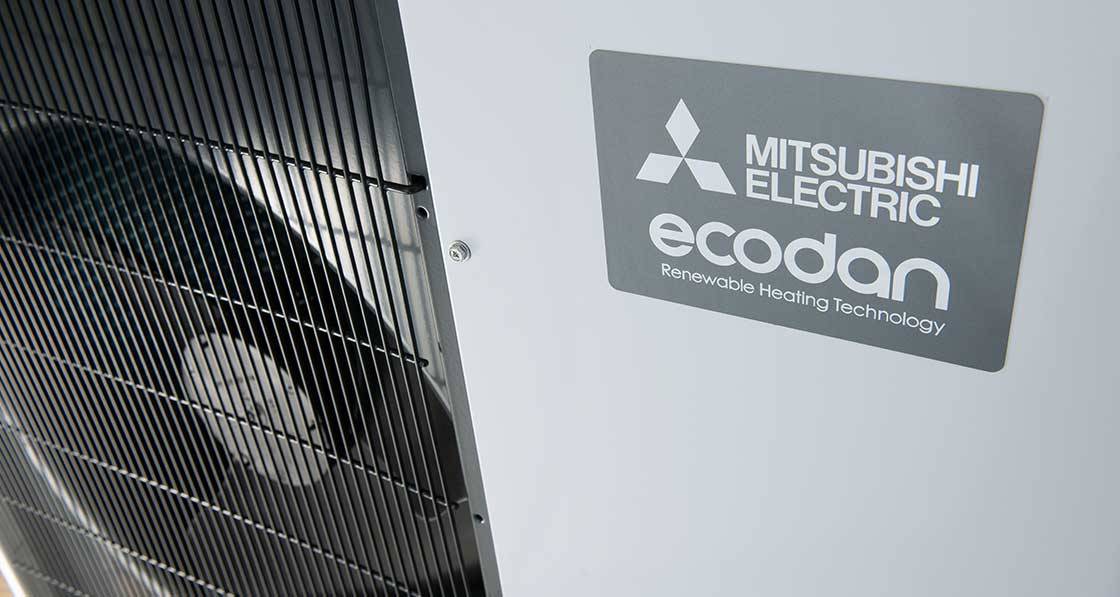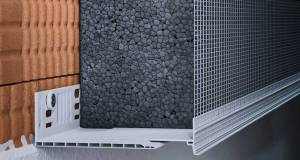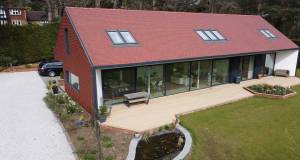
- Marketplace
- Posted
Heat pumps still best way to cut heating emissions – Mitsubishi
Despite recent focus on the launch of the UK’s hydrogen strategy, heat pumps are still the most logical technology for cutting carbon emissions from home heating appliances, according to Mitsubishi Electric UK.
This article was originally published in issue 39 of Passive House Plus magazine. Want immediate access to all back issues and exclusive extra content? Click here to subscribe for as little as €10, or click here to receive the next issue free of charge
“Heat pumps are here now, and they offer a viable solution to heating our homes in a low carbon way that will help tackle climate change,” said Max Haliwell, communications manager at Mitsubishi Electric. “The UK was the first major country to make it law that greenhouse gas emissions will be net-zero by 2050. When you consider 15 per cent of our total emissions comes from heating our homes, it’s easy to see why this is a major focus.
“To help achieve this, the government has announced that it is banning gas and oil-fired boilers in all new build homes from 2025. And this is where heat pumps can really help. The gas and oil lobby are fighting to show that they can remain viable in a low carbon economy, and heat pumps are a real threat to their dominance in the heating industry. It’s also worth noting [that] those parties pushing hydrogen as part of the solution also seem to be running an ‘anti-heat pump’ message.
“Yet there remain questions about the carbon intensive production needed for this hydrogen technology and, if it can work on the scale needed, it’s at least 10 years away – we simply don’t have the time to wait around.”
Haliwell said that the Heat Pump Association has set up a new programme to help train up to 40,000 installers each year, and Mitsubishi Electric said it has also introduced online learning to make training “easier, cheaper and more accessible to everyone.”
“Heat pumps are still more expensive than gas boilers, but gas has been the dominant method of heating our homes for over 70 years,” Haliwell said. “Heat pumps have been around just over a decade fitting in around 40,000 properties. The sooner we grow the number of installers and produce ten times more heat pumps a year, then the costs will come down for installation.
“Whilst it’s true that a heat pump will work most effectively in a highly insulated property, they can work well in even the most basic of homes. So, regardless of any plans the government may or may not have to help improve insulation in homes, heat pumps do offer a viable alternative.”
For more information see www.ecodan.co.uk
Related items
-
 New Ejot profile cuts thermal bridging losses by 25mm insulation equivalent
New Ejot profile cuts thermal bridging losses by 25mm insulation equivalent -
 Build Homes Better updates Isoquick certification to tackle brick support challenge
Build Homes Better updates Isoquick certification to tackle brick support challenge -
 Ecological Building Systems expands UK and Irish straw panel construction with EcoCocon deal
Ecological Building Systems expands UK and Irish straw panel construction with EcoCocon deal -
 Focus on better buildings, not better spreadsheets
Focus on better buildings, not better spreadsheets -
 MBC offers total passive house envelope solutions
MBC offers total passive house envelope solutions -
 Historic Dublin building retrofitted with cutting edge insulation
Historic Dublin building retrofitted with cutting edge insulation

